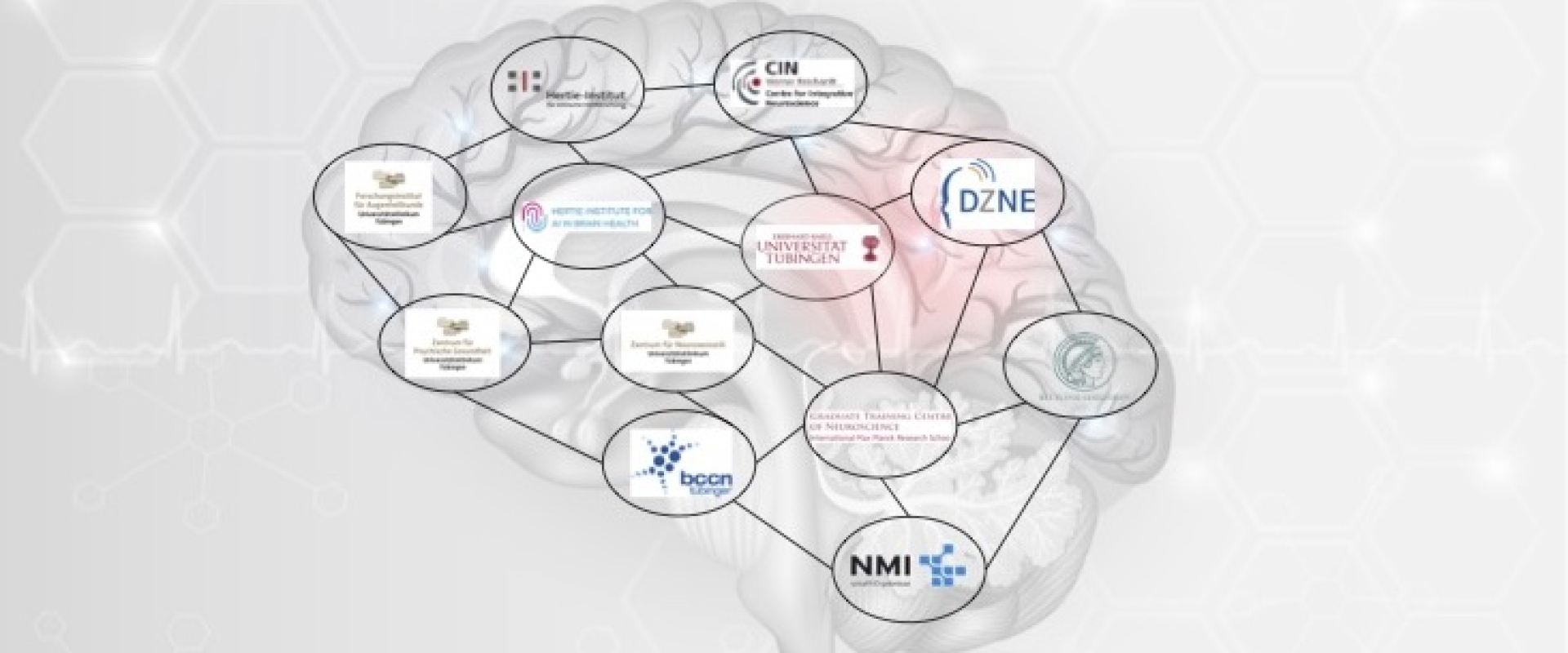

The Institutional Supervisory Board (ISB) of the TNC is composed of representatives of the following institutions, which represent the partners in the TNC:
Bernstein Center for Computational Neuroscience (BCCN): Prof. Dr. Matthias Bethge
Center for Mental Health: Prof. Dr. Andreas Fallgatter
Centre for Integrative Neuroscience (CIN): Prof. Dr. Thomas Euler
Centre for Neurosensory Systems at the University Hospital: Prof. Dr. Marius Ueffing
German Center for Neurodegenerative Diseases (DZNE): Prof. Dr. Thomas Gasser
Graduate Training Centre of Neuroscience (GTC): PD Dr. Marc Himmelbach
Hertie Institute for AI in Brain Health: Prof. Dr. Philipp Berens
Hertie Institute for Clinical Brain Research (HIH): Prof. Dr. Thomas Gasser
Max Planck Institute for Biological Cybernetics: Dr. Peter Dayan
Natural and Medical Sciences Institute Reutlingen (NMI): Prof. Dr. Katja Schenke-Layland
University of Tübingen with the following departments:
In addition, there are close connections to the Artificial Intelligence (AI) and Machine Learning (ML) Community in Tübingen:
Interface to the Cyber Valley: Prof. Jakob Macke
The Founding Group of the TNC, who was the driving force of the whole initiative, consists of the following people:
Prof. Philipp Berens (Hertie AI), Prof. Matthias Bethge (BCCN), Prof. Thomas Euler (CIN), Prof. Andreas Fallgatter (Center for Mental Health), Prof. Thomas Gasser (HIH), Prof. Marius Ueffing (Centre for Neurosensory Systems), Prof. Stephan Zipfel (Psychosomatic Medicine und Psychotherapy , UKT)

Tübingen is a special place for research. Very few locations offer such a wide range of research areas in such close proximity - both physically and figuratively. Not only are all of Tübingen's research institutions just a stone's throw away from each other, they also collaborate closely within the Tübingen Research Campus.
Visit page
Life in Tübingen is life in the heart of Europe and in one of Germany's most scenic and economically competitive regions. It's a bustling mediaeval town with a young, international, and vibrant population and a rich cultural and artistic scene. Lectures, concerts, film festivals, and more: life in Tübingen never gets boring.
Visit page
The Neurosciences in Tübingen with more than 100 active research groups have the potential to rank among the most successful neuroscientific sites in Europe.
Visit page